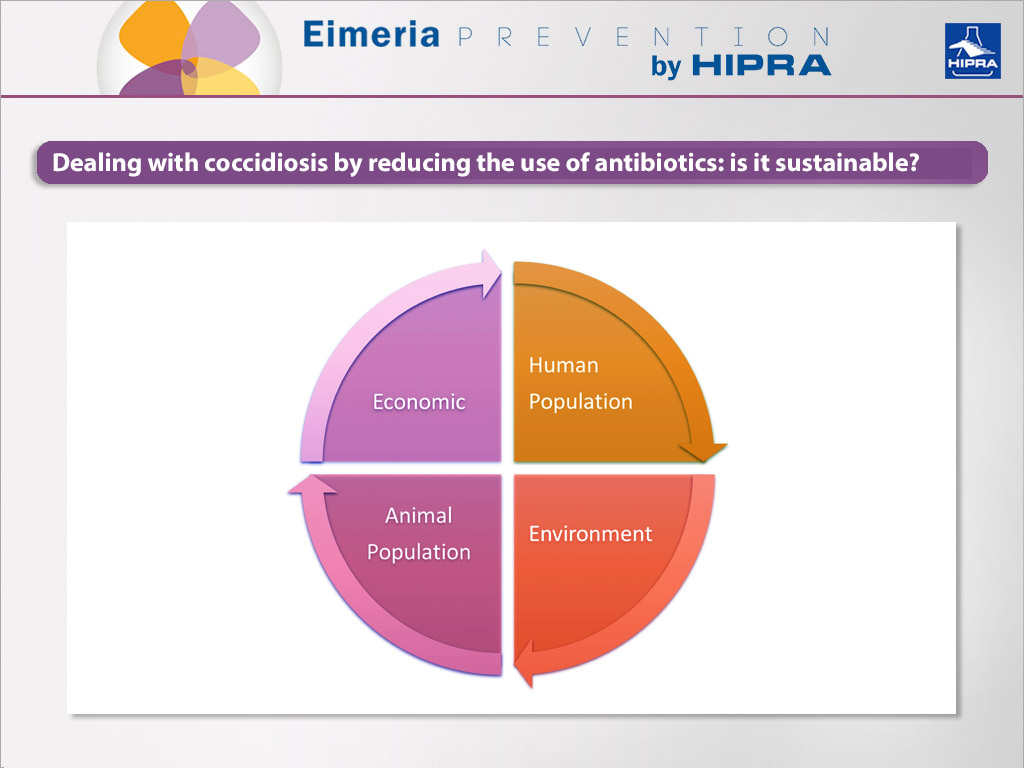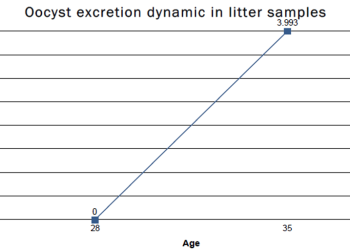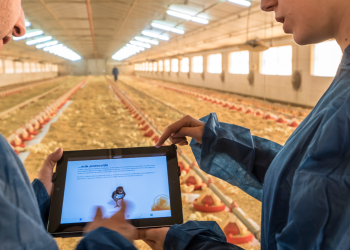One of the most worrying problems in poultry production is coccidiosis and how to deal with it without using antibiotics. It is a challenge that, we know, lies in prevention. Furthermore, it is impossible to think in terms of prevention and not to link this to sustainable action.
Thinking sustainably is to link the human population, animals and the environment into every decision or action. It is believing that the world is entirely interconnected.
The concept of One Health was envisaged and implemented by the OIE in the early 2000s as a collaborative global approach to understanding the risks to human and animal health and ecosystem health as a whole, and has everything to do with sustainable action.
Global sustainability affects veterinary medicine on a significant scale, and it is a particular challenge. Since the veterinary professionals play key roles in different parts of the ecosystem, it is necessary for them to understand what is happening in almost every other area of knowledge. Moreover, veterinary medicine is the only profession that routinely operates at the interface of these three components of One Health.
It is important to say that sustainable ways of thinking also look at economic aspects, which are needed for efficient production.
With regard to the poultry industry, it is impossible to make any decision without taking into account the health aspect. Every management plan looks first at the birds’ health because it is something that is influenced by every factor on a farm: buildings, nutrition, welfare.
The importance of digestive diseases is well known and, amongst these, coccidiosis can be named as one of the major health problems, and how to deal with it has been widely discussed during recent years. However, nowadays, there is a great deal of concern about the use of antibiotics in the poultry industry. The widespread use of anticoccidials or antibiotics has led to a resistance problem, which means that many of these drugs are no longer effective. One approach to be considered is to decrease antibiotic usage so that fewer numbers of bacteria are exposed to antibiotics and fewer resistant genes develop. Unnecessary use of antibiotics has been identified, and government associations are recommending a reduction in their usage (e.g. White House, 2015. National Action Plan for Combating Antibiotic-resistant Bacteria Washington, DC pp. 1–62).
Keeping the sustainability aspect in mind, it is to be recommended that poultry farming should focus on prevention rather than treatment. Indeed, in veterinary medicine, prevention and sustainability could be synonymous.
The prevention of coccidiosis without the use of anticoccidials or antibiotics is now a reality for forward-looking farms. There is increasing awareness amongst consumers about the products they purchase. They want to know how the animal was raised and processed, besides what sustainable practices were applied during the process chain.
It is a win-win situation: famers guarantee a standard of flock health, consumers purchase sustainable products.





